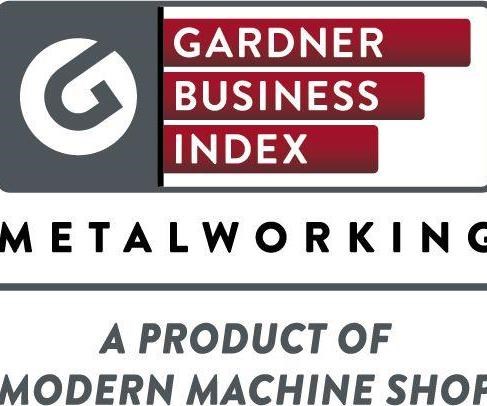Gardner Business Index: Metalworking July 2016 – 45.3
If we ignore the spike earlier this year, the industry actually has steadily improved since last November.
Share






With a reading of 45.3, the Gardner Business Index showed that the metalworking industry contracted in July at a slightly slower rate than in June. If we remove the significant spike in the index in February and March, then it has slowly and steadily improved since November 2015.
After a hard fall in new orders since March, their rate of contraction moderated in July. Discounting a spike in April, the production subindex in July was at virtually its highest level since May 2015. Like new orders and production, the backlog subindex also spiked sharply in March, but absent that, this subindex has contracted at a noticeably slower rate since November. Employment has contracted for 12 consecutive months, and exports have contracted since March 2014 with generally accelerating contraction since this past March. Supplier deliveries lengthened for the fifth month in a row.
Material prices had shot up dramatically in the first half of 2016, but in July they increased at a slower rate. They increased at a faster rate from May to July, however, than at any time since the first half of 2014. Prices received have decreased since June 2015 with the rate of decrease accelerating since this past April. Future business expectations improved slightly in July but remained near their lowest level of the last three years.
Every geographic region contracted for the third month in a row. The Southeast was the strongest region for the third time in five months, and it was closely followed by the North Central-East, South Central and North Central-West. The South Central had its second highest index since May 2015, while the Northeast and West lagged the other regions.
While they are still well below the historical average, future capital spending plans have increased compared with one year earlier for the fourth month in a row, therefore, the annual rate of change has contracted at a decelerating rate since February. The rate of contraction was the slowest since March 2015, which is a positive sign for capital equipment consumption.
Related Content
-
Metalworking Activity is Nearing a Full Year of Contraction
Metalworking activity has contracted since October of 2022.
-
Metalworking Activity Remained on a Path of Contraction
Steady contraction of production, new orders and backlog drove accelerated contraction in November.
-
Metalworking Activity Shows Signs of Stabilizing Contraction
Metalworking activity continued to contract in what has become a rather characteristic GBI ‘dance.’

.JPG;width=70;height=70;mode=crop)























.jpg;maxWidth=970;quality=90)